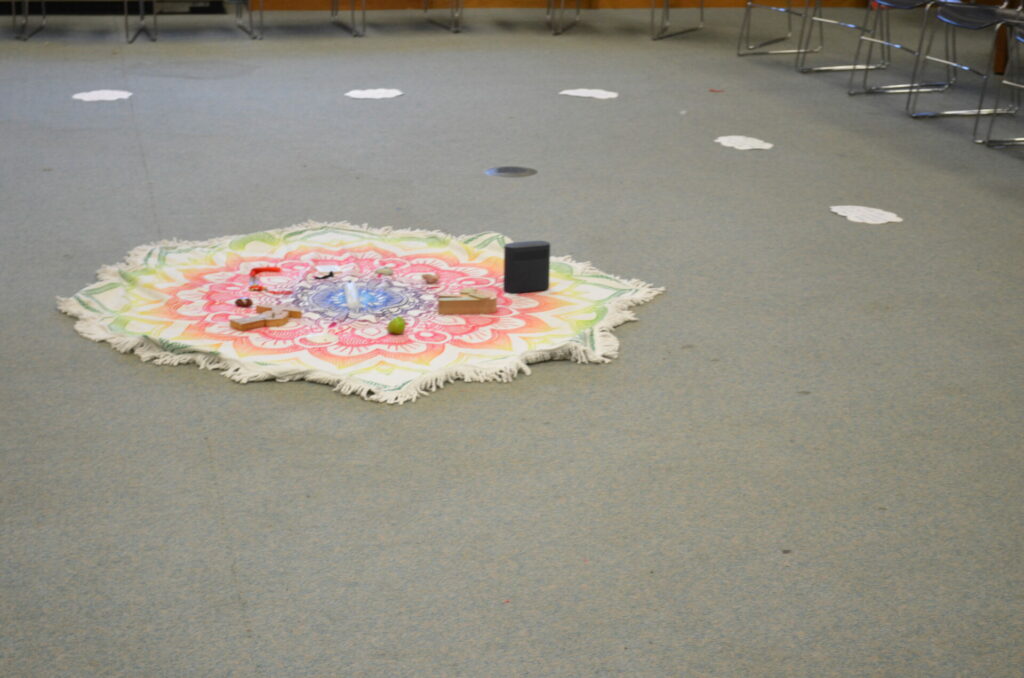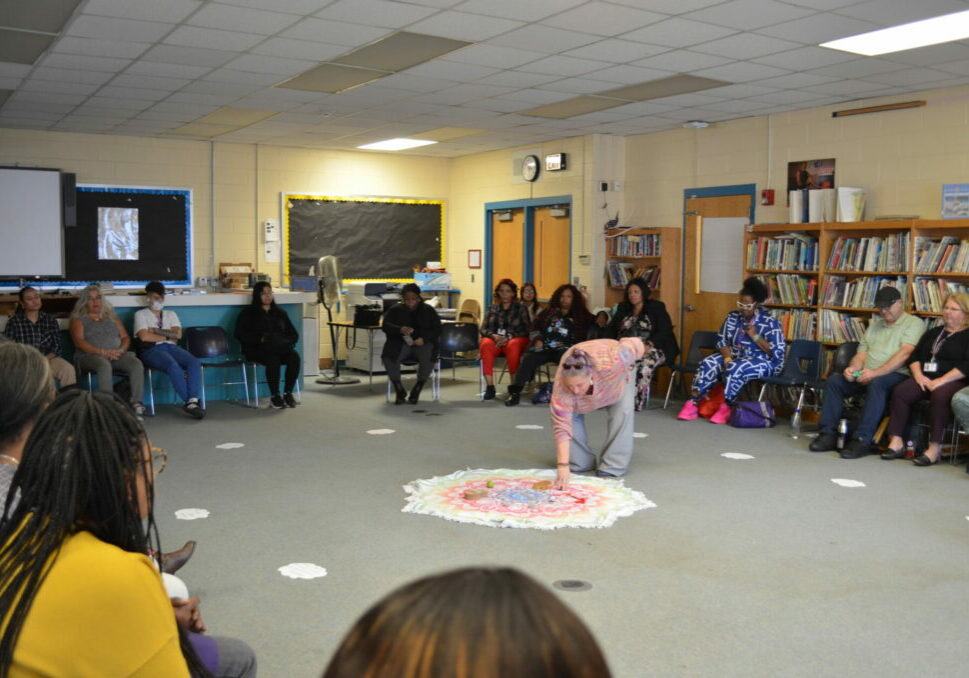Healing Circles can be wonderful tools to help build community and provide support for others. NJEA ACCESS consultant Carolyn L. Corbi, M.A. recently conducted a Healing Circle at Yorkshop Elementary School in Camden on Oct. 25.
Corbi has been a circle practitioner for approximately 10 years and has been trained by some of the most renowned circle practitioners in the field. Using The Circle Way in schools with students and with adults has brought a sense of community to classrooms as well as self-efficacy, empathy and general mental well-being. The Circle Way allows anyone in the space to start the healing process.
Here’s some information to help better understand Healing Circles, according to HealingCirclesGlobal.org:
Healing Circles are safe havens.
- They help us step out of ordinary time into a safe and accepting environment in which we can explore our healing.
- With open minds, we work together to discover the best ways to remove obstacles to healing, alleviate suffering, and deepen our capacity to heal.
- With open hearts, we access our own inner guidance to understand where the greatest healing—in body, emotions, mind and spirit—can occur.

Healing Circles are built on a foundation of kindness and respect.
Circle participants agree to:
- Treat each other with kindness and respect.
- Listen with compassion and curiosity.
- Honor each other’s unique ways to healing and don’t presume to advise or fix or try to save each other.
- Hold all stories shared in the circle in confidence.
- Trust that each of us has the guidance we need within us.
- Rely on the power of silence to access that guidance.
This circle took place at the end of a school day when staff needs to unwind. The room is set with about 40 chairs in a circle. The lights are dimmed. In the center of the circle are some items that are used to maintain control. A talking stick or a talking stone or talking item is used. The Talking Stick, used in many Indigenous cultures, is an ancient and powerful “communication tool” that ensures a code of conduct of respect is followed during meetings. The person holding the stick, and only that person, is designated as having the right to speak and all others must listen quietly and respectfully.
Corbi takes the time to explain to the participants how circles function. Since Corbi frequently hosts circles for the faculty and in classrooms, most of the staff is well aware of the rules.
All ACCESS Consultants have been trained in circle practice and use the practice when working with their schools.
Carolyn L. Corbi, M.A. is a seasoned semi-retired educator and union activist. She taught in the Pennsauken Public School district for more than 31 years where she educated students with special needs grades Pre-K-12. In her third year of teaching, she was awarded the Governor’s Award for Teacher of the Year for her school.

